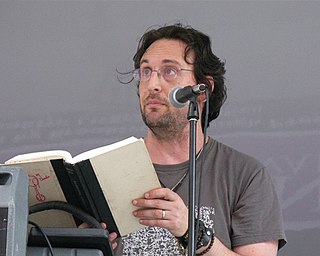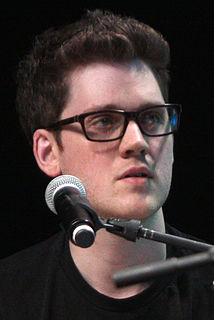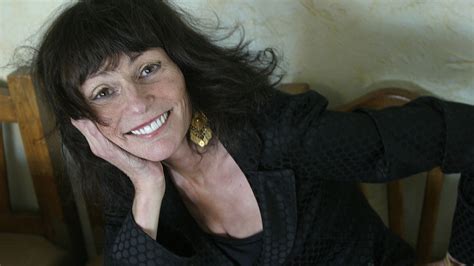A Quote by Christopher Paolini
The advantage of writing from experience is that it often provides you with details that you would never think of yourself, no matter how rich your imagination. And specificity in description is something every writer should strive for.
Related Quotes
If you're going to be a writer you should sit down and write in the morning, and keep it up all day, every day. Charles Bukowski, no matter how drunk he got the night before or no matter how hungover he was, the next morning he was at his typewriter. Every morning. Holidays, too. He'd have a bottle of whiskey with him to wake up with, and that's what he believed. That's the way you became a writer: by writing. When you weren't writing, you weren't a writer.
Your job description as a journalist is to question and scrutinize critically-neve r to repeat claims uncritically, no matter how highly placed the sources in the bureaucracy. Don't ever forget that. You're a damn good writer, but that talent is completely worthless if you forget your job description.
There are many diamonds in the world and if you lose your favorite, you can work hard, earn a lot of money and get another one to replace it. But the moments of your life aren't like that. Once they're gone, they'll never return. Each and every one is the most precious thing in existence. You can never meaningfully compare one moment with any other. You can never meaningfully compare your life with anyone else's. No matter how rich someone else may be, no matter how happy they look, no matter how enlightened they seem, they can never be you. Never, ever, ever. Only you can live your life.
Writing original songs is much, much harder (I think) because you only have yourself to conjure up EVERY single moment a listener is going to hear. It's a craft that goes directly from your brain to their ears. You can never be sure that what you're writing is gonna be good enough to keep a listener engaged and truly experience something. It's a shot in the dark.
Let the writer take up surgery or bricklaying if he is interested in technique. There is no mechanical way to get the writing done, no shortcut. The young writer would be a fool to follow a theory. Teach yourself by your own mistakes; people learn only by error. The good artist believes that nobody is good enough to give him advice. He has supreme vanity. No matter how much he admires the old writer, he wants to beat him.
writing is about doing something very close to the bone. It's about shocking yourself. When I write, I like to make myself cry, laugh - I like to give myself an experience. I see a lot of writing out there that's very safe. But if you're not scaring yourself, why would you think that you'd be scaring anybody else? If you're not coming to a revelation about your place in the universe, why would you think anyone else would?
Henry Corbin creates the world - most of all his examination of the imagination and what the imagination was for him. Some philosophers would think of the imagination as a synthetic ability, how you put different things together. Artists more think of the imagination as creativity. So I really like the way that he presents the imagination as a faculty that allows one to experience worlds that are not exactly physical but are real nonetheless.
Success is something you should never take into consideration: if you follow it it'll elude you. It's important to really love your work as a writer, to read loads to the point where you can recognise blindfolded, hearing them read, the writers of yesterday and today. It's important to write every day, for hours. To have faith in your imagination and let it wander.
I never thought that the possession of money would make me feel rich: it often does seem to have an opposite effect. But then, I have never had the opportunity of knowing, by experience, how it does make one feel. It is something to have been spared the responsibility of taking charge of the Lord's silver and gold.
One of the finest beliefs I developed years ago that helped me to enjoy all of my life experience was the idea that there are no bad experiences, that no matter what I go through in life - whether it's a challenging experience or a pleasurable one - every experience provides me something of value if I look for it.
Writing is not a searching about in the daily experience for apt similes and pretty thoughts and images… It is not a conscious recording of the day’s experiences ‘freshly and with the appearance of reality’… The writer of imagination would find himself released from observing things for the purpose of writing them down later. He would be there to enjoy, to taste, to engage the free world, not a world which he carries like a bag of food, always fearful lest he drop something or someone get more than he.


































